When running through PricePlow’s 2020 Supplement Awards, we realized that CORE Nutritionals quietly had an incredible year, getting mentions in nearly every category. One product we missed, however, was Core VEGAN, their popular vegan protein powder that’s enhanced with additional BCAAs and digestive enzymes.
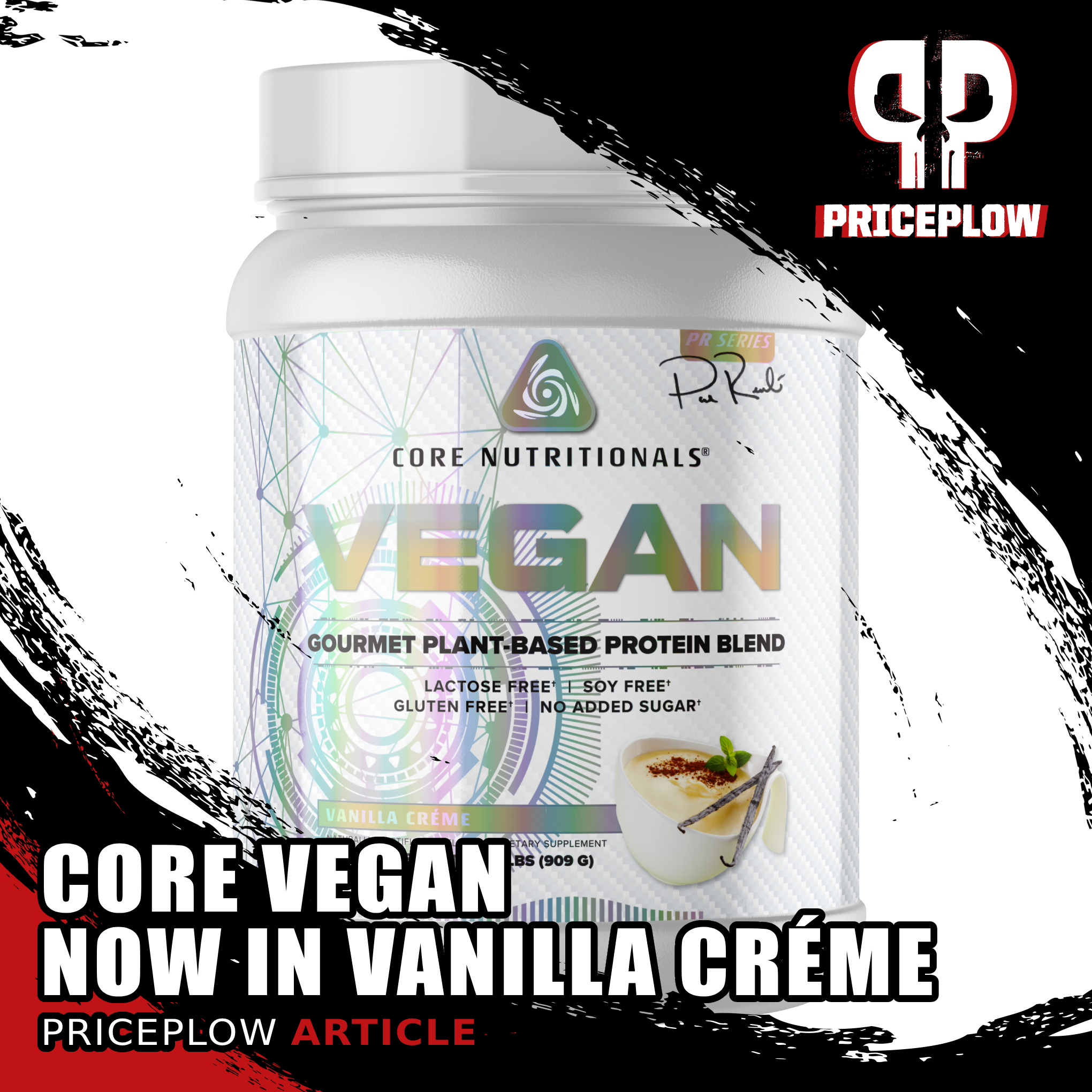
CORE Vegan Protein is perfect for CORE Nutritionals’ demographic, with added BCAAs, digestive enzymes, and full-on flavor to bring it home!
Today (May 10, 2021), the brand behind Doug Miller is launching Core VEGAN Vanilla Créme, a seemingly simple flavor that’s anything but — which is why we see so few brands launch a straight vanilla vegan protein powder.
Since we haven’t covered Core VEGAN yet, we use this as an opportunity to rehash the entire formula, while showing labels for this sweet new vanilla flavor.
The TL;DR on Core VEGAN
- A blend of pea protein isolate and brown rice protein
- 120 calories, 21g protein, 3g fat, and 2g carbs (for Vanilla Créme)
- Added BCAAs to enhance the amino acid profile
- Added DigiSeb digestive enzymes to improve digestion and absorption
- Thickened with coconut oil creamer and xanthan gum
- Sweetened with sucralose and acesulfame potassium
This is a fantastic take on how you do vegan protein powders, but realize that the sweeteners and use of both natural and artificial flavors make it vegan — but not 100% plant-based. That’s fine by us and most of our followers in the sports nutrition industry, since we’re often looking for dairy-alternatives and know it will taste better than a stevia-sweetened alternative.
Core VEGAN Vanilla Créme Brings the Tilde
CORE wanted to make sure you realize this new flavor isn’t just a “vanilla”, a “vanilla cream”, or even a “vanilla creme” for that matter. It’s Vanilla Créme, tilde and all. Because Doug and team are bringing the flavor with some serious punch in this one.
Details are below, but if you’ve seen enough, you can check our PricePlow-powered coupon prices and sign up for our CORE Nutritionals News alerts:
Core Nutritionals Vegan – Deals and Price Drop Alerts
Get Price Alerts
No spam, no scams.
Disclosure: PricePlow relies on pricing from stores with which we have a business relationship. We work hard to keep pricing current, but you may find a better offer.
Posts are sponsored in part by the retailers and/or brands listed on this page.
This area is reserved for Team PricePlow's upcoming Product Review video.
Subscribe to our channel and sign up for notifications so you catch it when it goes live!
Core VEGAN Nutrition Facts (Vanilla Créme)
The new Vanilla Créme flavor brings the following macros in a 30.7g scoop:
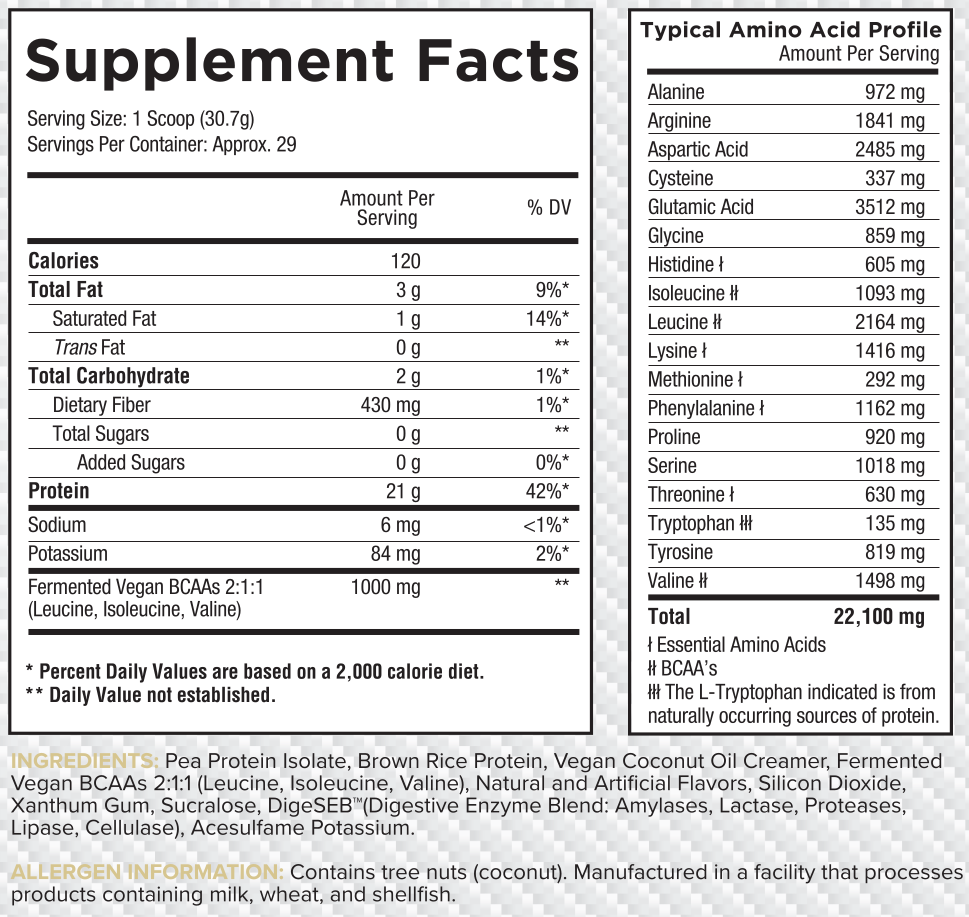
With the added BCAAs (leucine, isoleucine, and valine), we have a very well-rounded amino acid profile
- Calories: 120
- Protein: 21g
- Fat: 3g (1g saturated)
- Carbohydrates: 2g (~0.5g fiber)
A small touch, but it’s nice to see 21g protein instead of the standard 20g in competition – and they did this with lower carbs, meaning the percentage of protein by weight will be better in Core Vegan than your average vegan protein powder. The extra gram is likely from the added BCAA blend.
Regarding the flavor — in short, it has a very “vanilla bean pudding” style to it.
Core Vegan Ingredients
-
Plant Protein Sources
To build a complete protein, CORE Nutritionals blends pea protein isolate with brown rice protein, but then goes even further and adds another gram of 2:1:1 BCAA, which will be discussed in the next section. We often see the pea/rice blend, but we don’t always get the added fortifications, so this label really stands out right off the bat.
This is also a very hypoallergenic protein powder, given that it doesn’t have the most common allergens like soy, wheat, or dairy.
Ingredients are always listed by weight and in descending order. We don’t know the exact amounts of the proteins below, but pea protein will either be greater than or equal to the amount of brown rice protein.
-
Pea Protein Isolate
Pea Protein and Whey Protein were both significantly better than placebo (not surprising), but not significantly different from each other.[3]
Pea protein isolate is one of the highest-quality plant protein sources, and it’s no surprise to see it first on the label. It’s arguably one of the few that is a complete protein source, since it has all nine essential amino acids inside,[1] but may be a bit low on methionine,[2] which is why we like to see it in a blend with brown rice.
A major 2015 placebo-controlled study performed on 161 males compared pea protein against whey protein over the course of a 12-week resistance training program to see which protein source would increase muscle mass and strength the most.[3] Each person consumed 25g pea protein, whey protein, or placebo.
The researchers found that those who had pea protein had increased muscle thickness better than placebo, and the same as the whey protein group.[3] This was a landmark study, since whey protein is always touted as one of the gold standards of protein supplementation.
Great digestibility
Research also shows that pea protein is highly digestible. Pea protein has a PDCAAS (protein digestibility-corrected amino acid score) of 92.8% out of 100%.[1] This is a great general assessment of its quality based on our amino acid requirements and ability to digest them, and the score is very high for a plant protein source.
However, pea protein alone could still use some help, which is why CORE has added brown rice and even more BCAAs:
-
Brown Rice Protein
Common amino acid profiles from plant-based proteins.[2] Pea and rice are often used together to offset some of their deficiencies.
Brown rice protein has possibly been around the longest, and is a great source of protein, especially since it can make up for the slightly low methionine levels in pea protein. 37% of its protein content comes from EAAs (essential amino acids), and 18% of that are in the BCAAs (branched chain amino acids).[4]
By mixing it with pea protein, CORE has already taken care of one of the issues with brown rice protein, in that it’s low in the essential amino acid lysine.[5] This is why the pea protein isolate + brown rice protein blend is so popular — you get full coverage of the essential amino acids that you’re body can’t produce on it own.
Getting into the gym and away from the lab, a 2013 study also found that when rice protein isolate was pitted against whey protein, there were no significant differences in recovery or changes in body composition.[6] The research team concluded that rice protein is a good replacement for whey protein in a post-workout setting.[6] We’ll still add, however, that pea + rice is far better than rice alone.
However, we’re not done with amino acids yet:
-
-
Added Vegan BCAAs in a 2:1:1 ratio – 1g
One of the biggest benefits of whey protein is that it’s high in leucine, the branched chain amino acid (which is also an essential amino acid) that’s primarily responsible for driving muscle protein synthesis through the mTOR pathway![7,8]
So what does CORE Nutritionals do to make up for this? Add more! With CORE Vegan, you’ll get an additional:
- 500mg Leucine
- 250mg Isoleucine
- 250mg Valine
While a gram may not seem like a big deal, looking at the amino acid profile provided on CORE Vegan’s label, you’ll see that the numbers round out quite well, with leucine now yielding over 2g per serving.
This is a small touch that more companies should be doing – but generally aren’t.
-
Added Digestive Enzymes
To top the profile off, CORE Vegan has an added blend of DigeSEB digestive enzymes. This blend contains a proprietary blend of the following:
- Amylases, which help break down starches (carbohydrates)
- Lactase, which helps break down lactose (milk sugars, not really needed here but won’t hurt)
- Proteases, which help break down protein
- Lipase, which helps break down lipids (dietary fats)
- Cellulase, which helps break down cellulose (plant fibers)
Most of these are straightforward and great to have included in a vegan protein, especially protease, amylase, and cellulase.
Don’t sleep on protease post-workout
However, protease has even more interesting research behind it — research has shown that it reduces exercise’s damaging effects and increases recovery![9,10] It seems that the digestive enzyme can assist in recovering soft tissue injury from high-level activity, so it’s great to see in any product that may be taken post-workout.
-
The other ingredients
Could Protease help with post workout soreness and recovery? If so, why don’t we see it in more post workout supplements and protein powders?!
CORE is using a unique blend of vegan coconut oil creamer and xanthan gum to thicken and smooth the proteins out. Coconut oil creamers always add a texture that users enjoy, yet we never taste any coconut from it. The dosage isn’t going to be too high, given that coconut oil is a saturated fat and there’s only 1g on the label.
As mentioned in the intro, we have natural and artificial flavors, sucralose, and acesulfame potassium, which means that this is not a 100% “plant protein”… but will likely also taste far better than your average stevia-sweetened vegan protein powder.
Most of CORE’s demographic will not care about this – we are looking for performance and flavor, and that’s exactly what they’ve provided in CORE Vegan.
Available Flavors
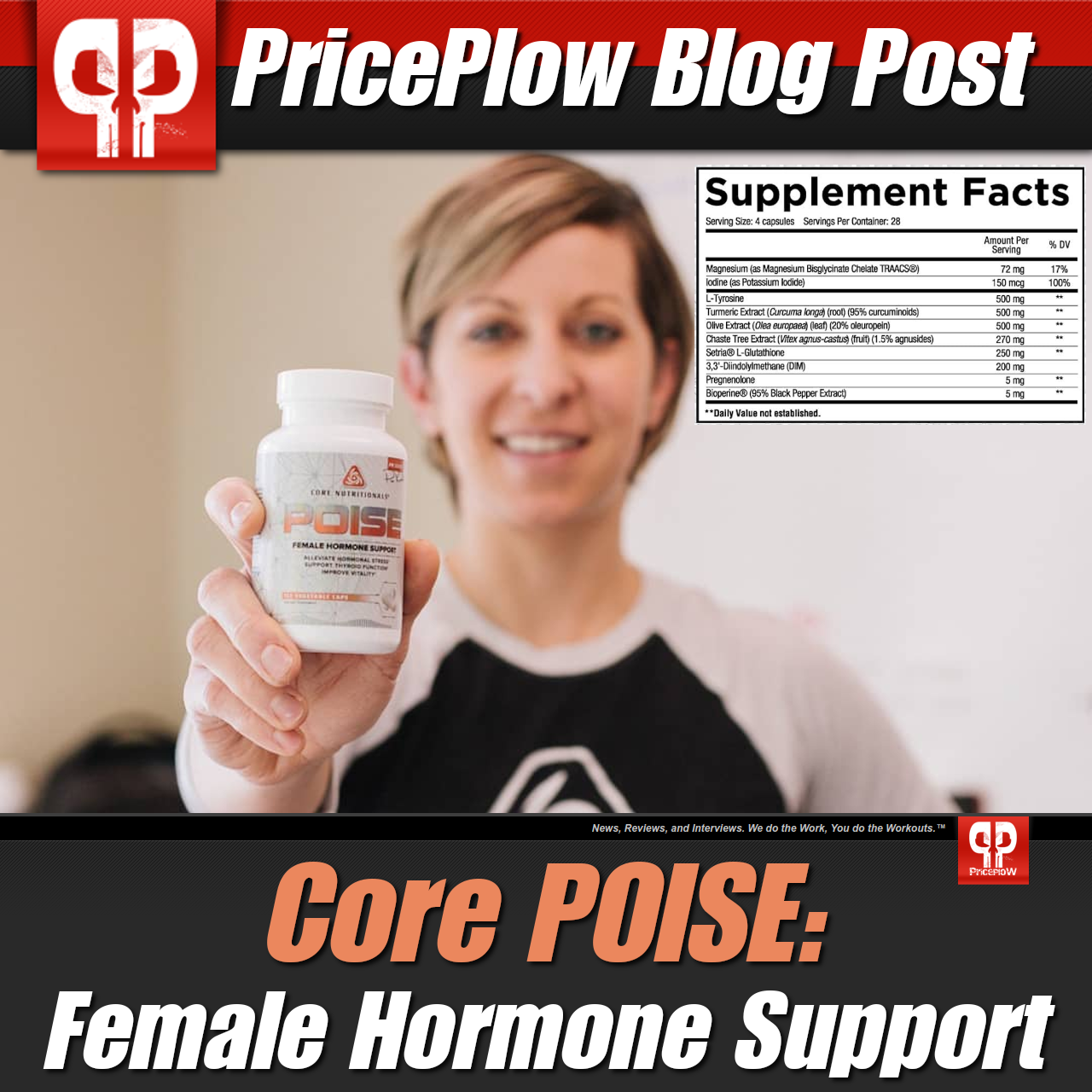
Our female readers may be very interested in Core POISE.
The following list of Core VEGAN flavors and our PricePlow-powered prices will remain up-to-date:
CORE Vegan is a sports nutrition vegan protein done right
We slept on CORE Nutritionals for far too long, and our 2020 Supplement Awards showed that. They never wanted to be a “protein company”, but they consistently keep putting out incredible proteins (Core MRP, Core PRO Hot Cocoa Flavor, and Core BALLS all come to mind), so in our eyes, it’s definitely one of their strong points.
This is a vegan protein powder that speaks to their demographic — athletes. Ther added BCAAs combined with added digestive enzymes shouldn’t seem like that big of a deal, but at the same time, few are doing it. This brings the protein closer to what athletes expect not just in terms of “preventing deficiencies”, but for enhancing performance and recovery.
Finally, using artificial sweeteners may scare away the 100% plant protein faithful, but that’s not the audience. The ingredients inside are great for those who are flexibly vegan or who have become too dairy-sensitive to use whey, bringing the benefits from both worlds.
Stay up to date with our CORE Nutritionals news, we’re sure there’s more coming:
Core Nutritionals Vegan – Deals and Price Drop Alerts
Get Price Alerts
No spam, no scams.
Disclosure: PricePlow relies on pricing from stores with which we have a business relationship. We work hard to keep pricing current, but you may find a better offer.
Posts are sponsored in part by the retailers and/or brands listed on this page.
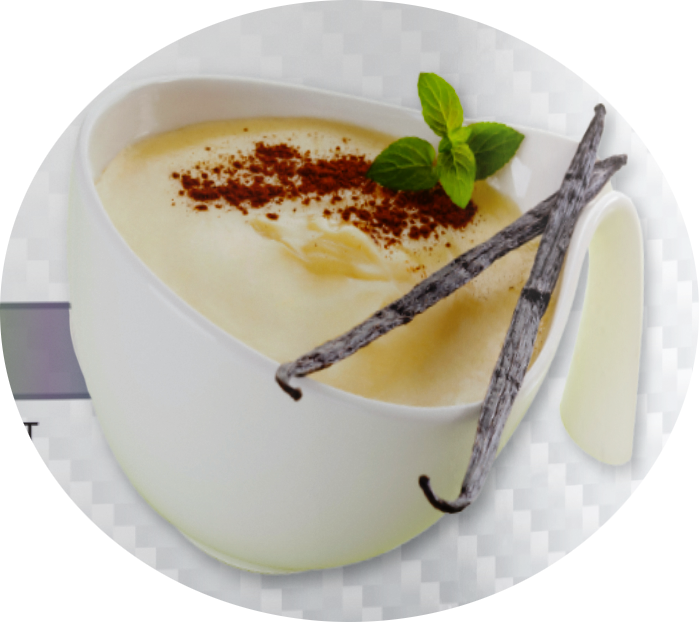
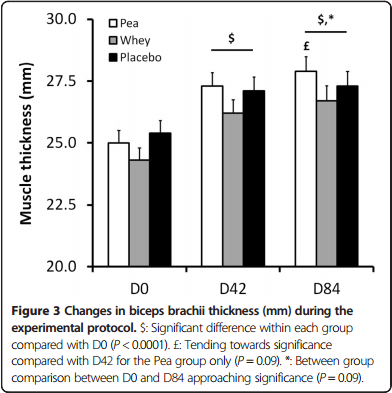
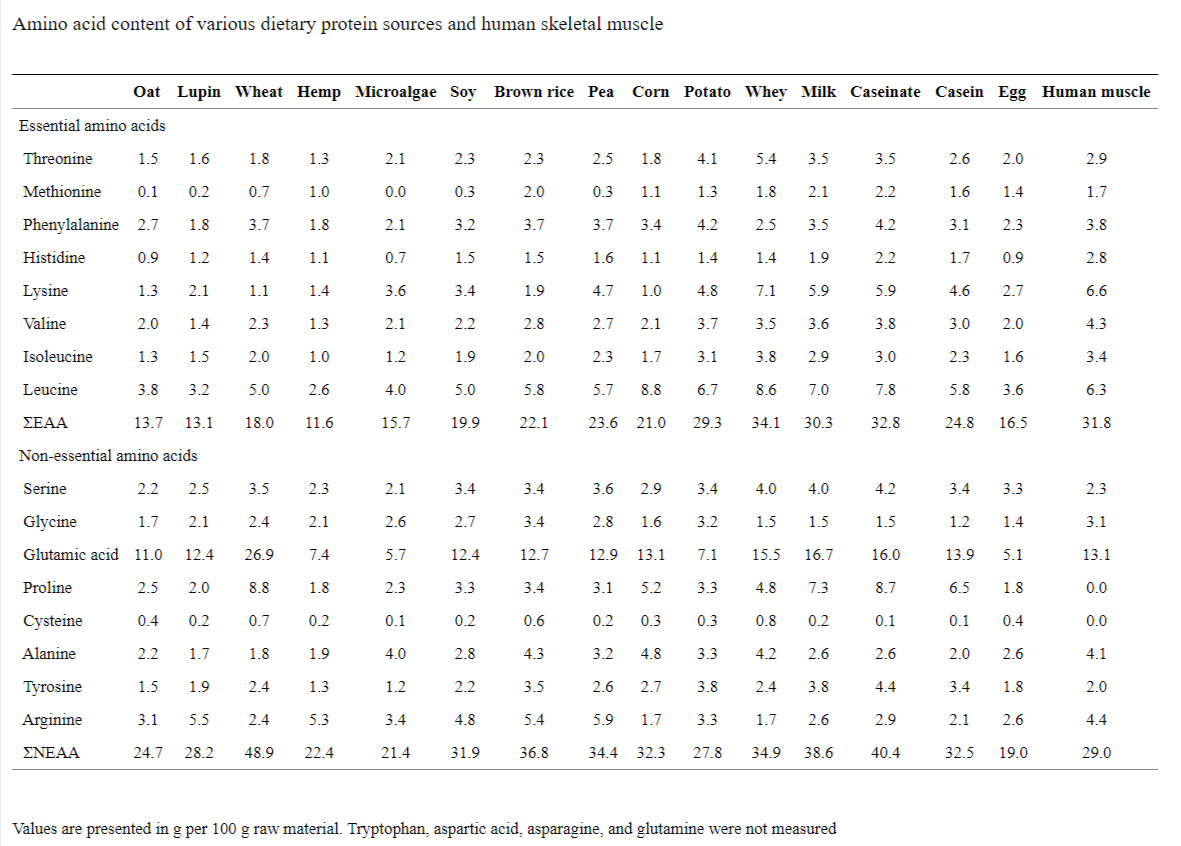
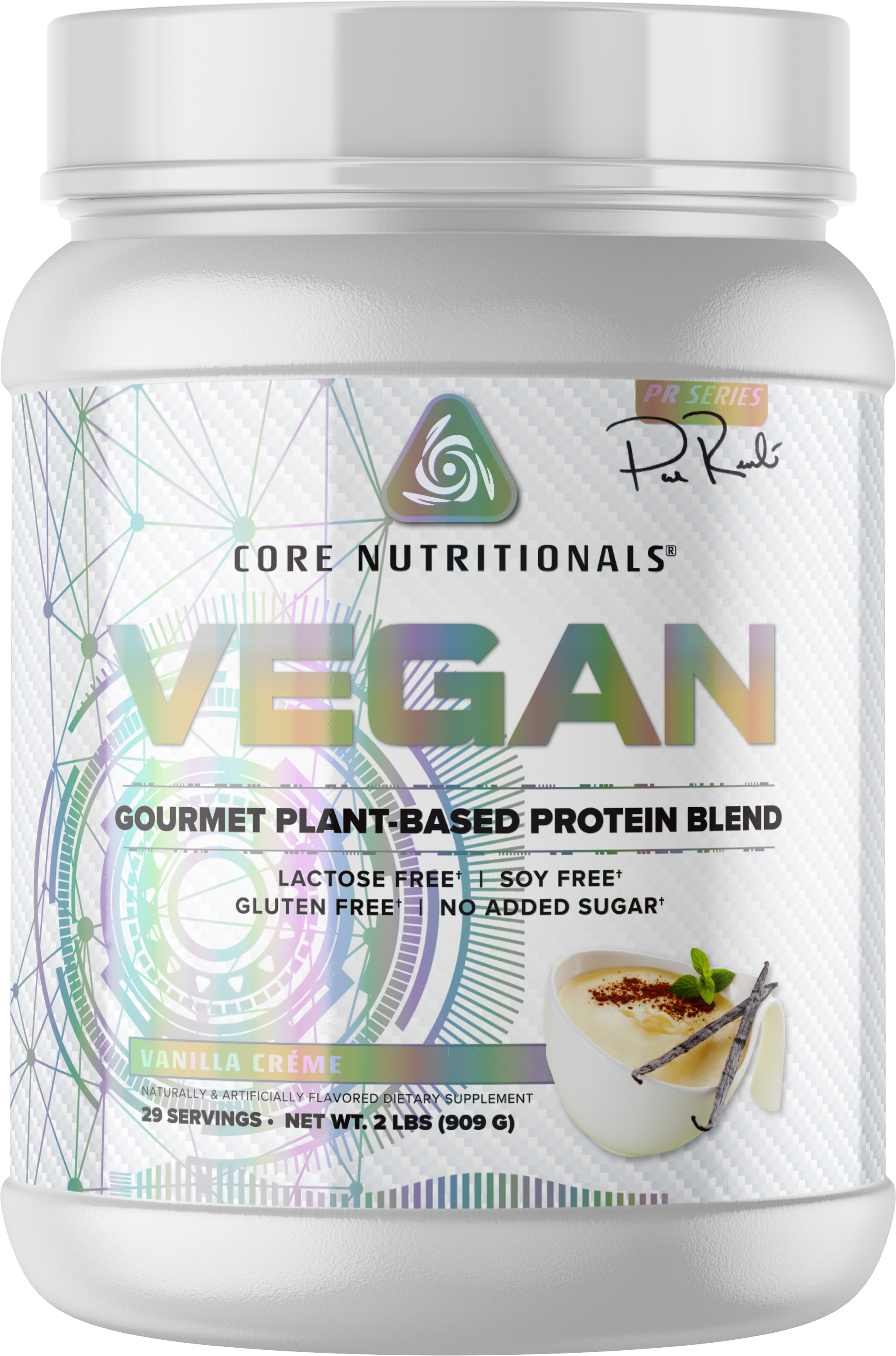
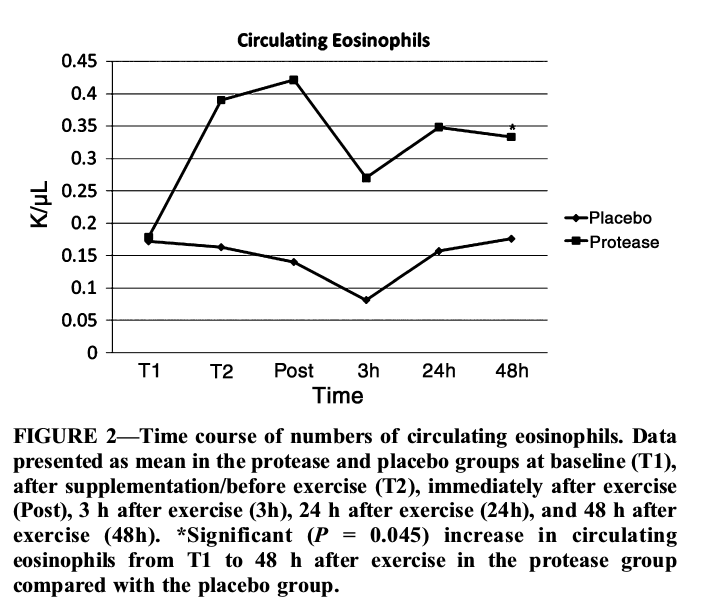
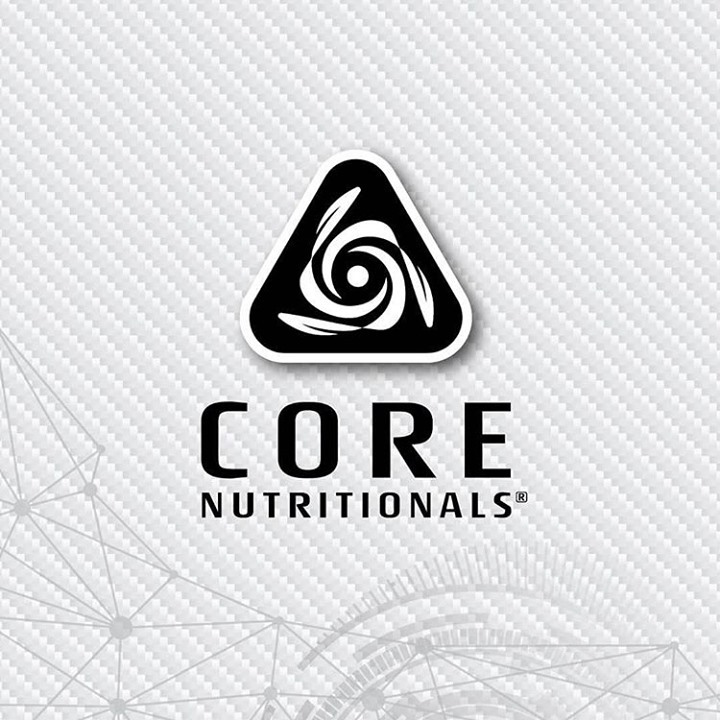



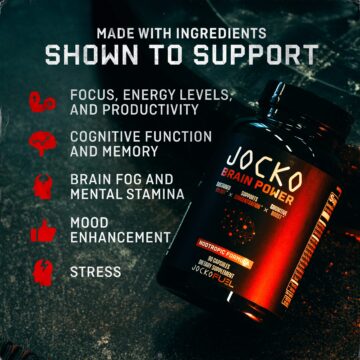
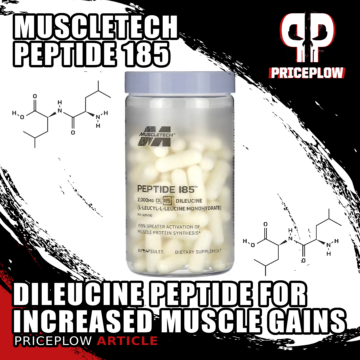
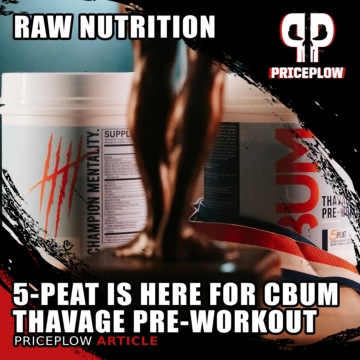


Comments and Discussion (Powered by the PricePlow Forum)